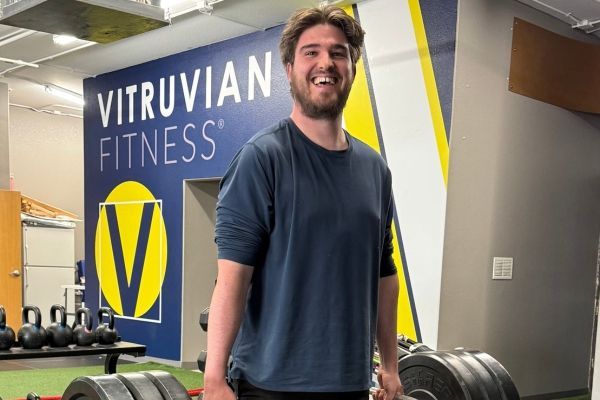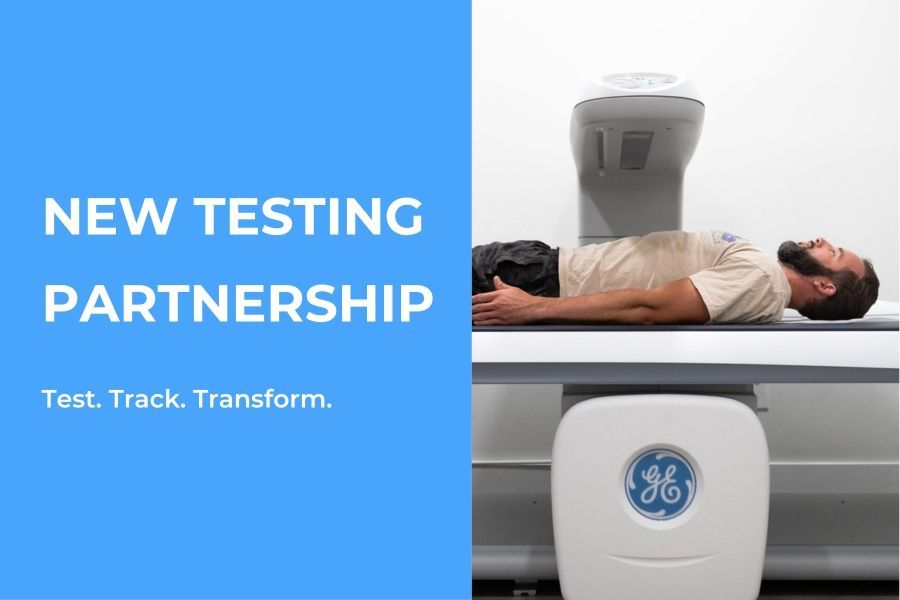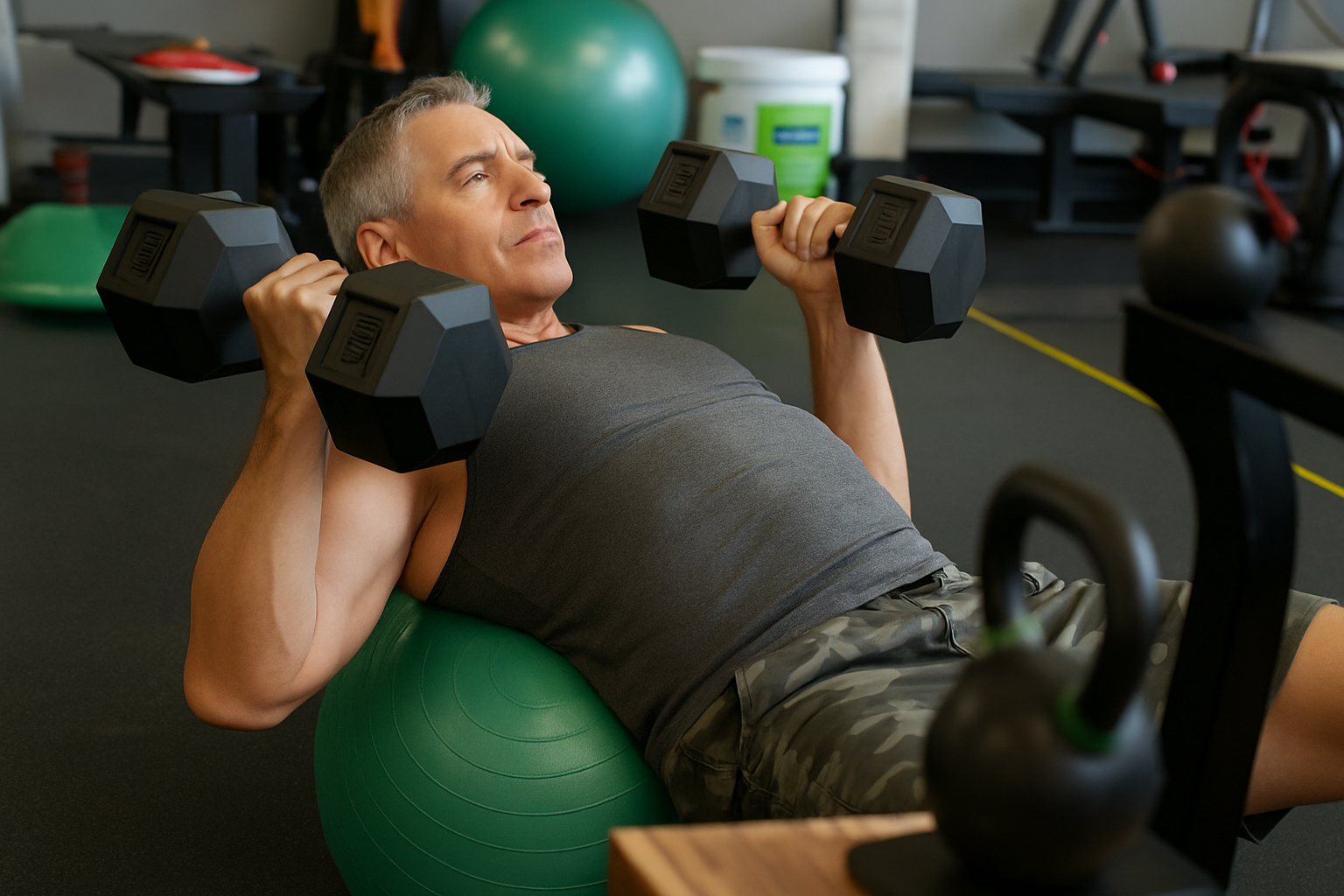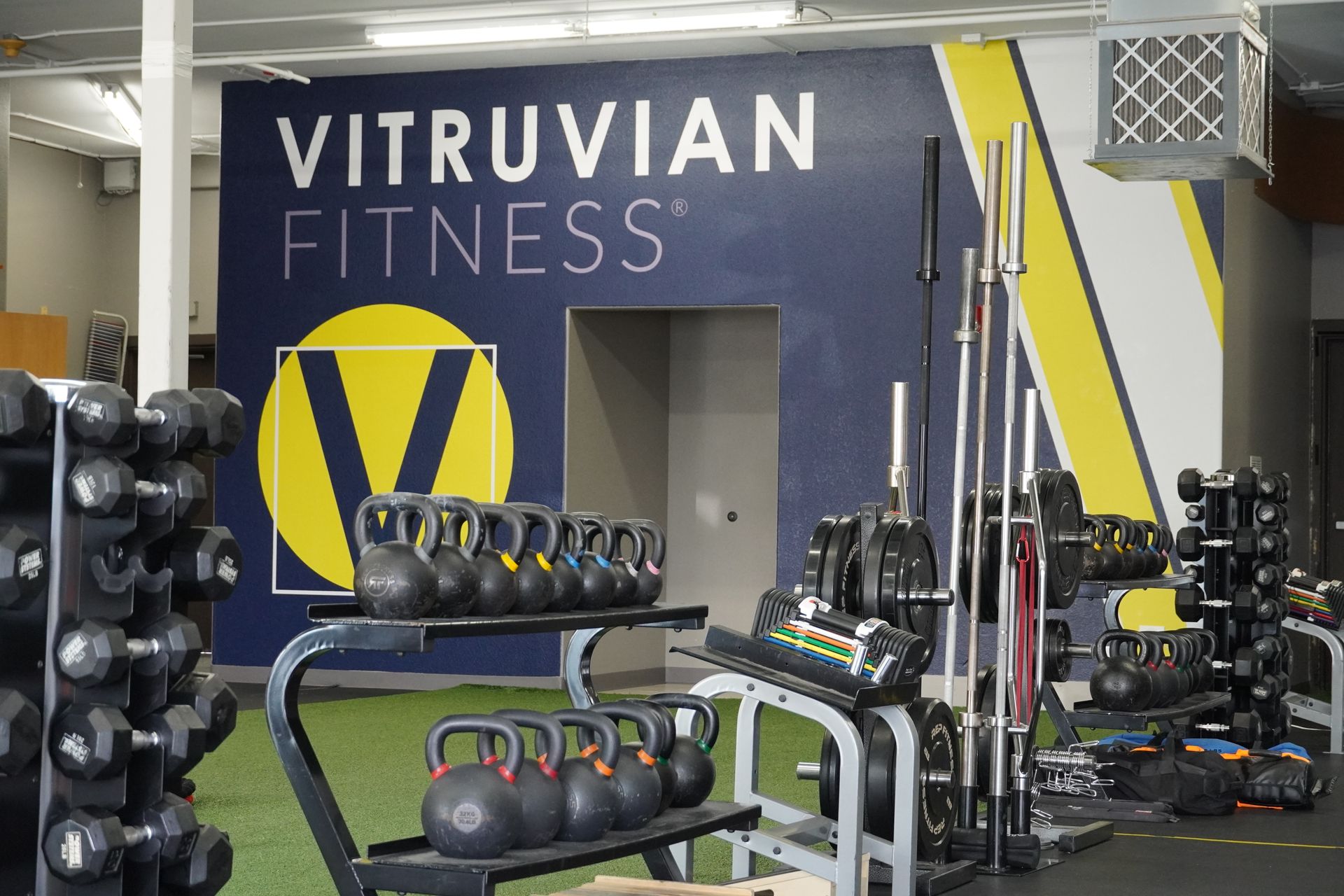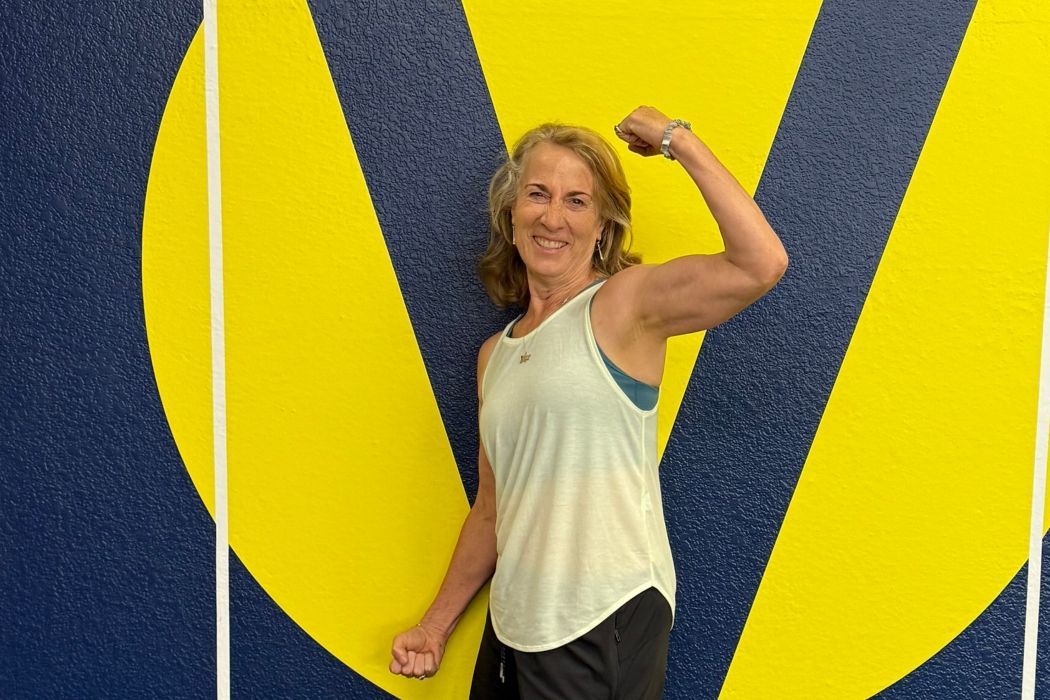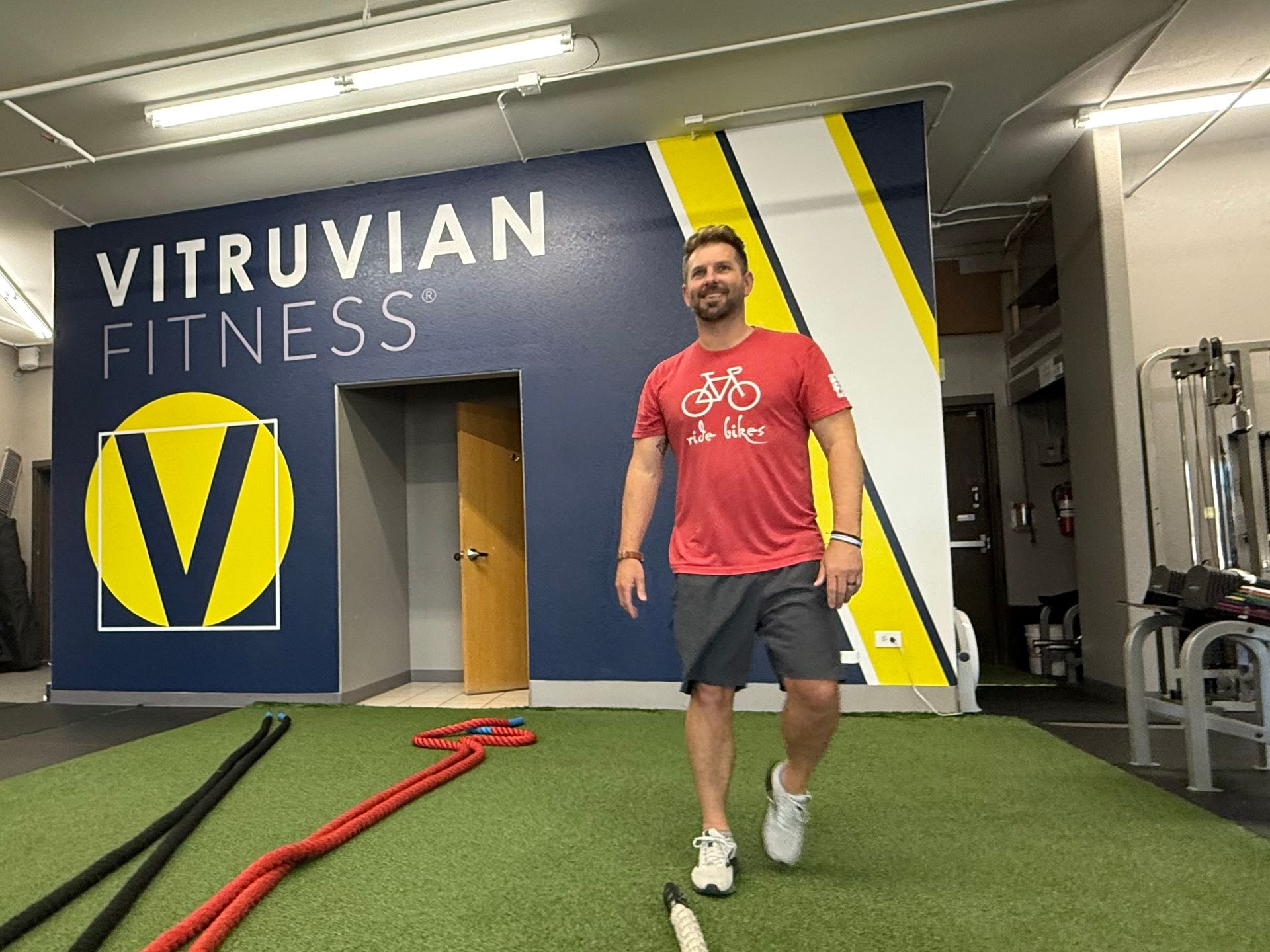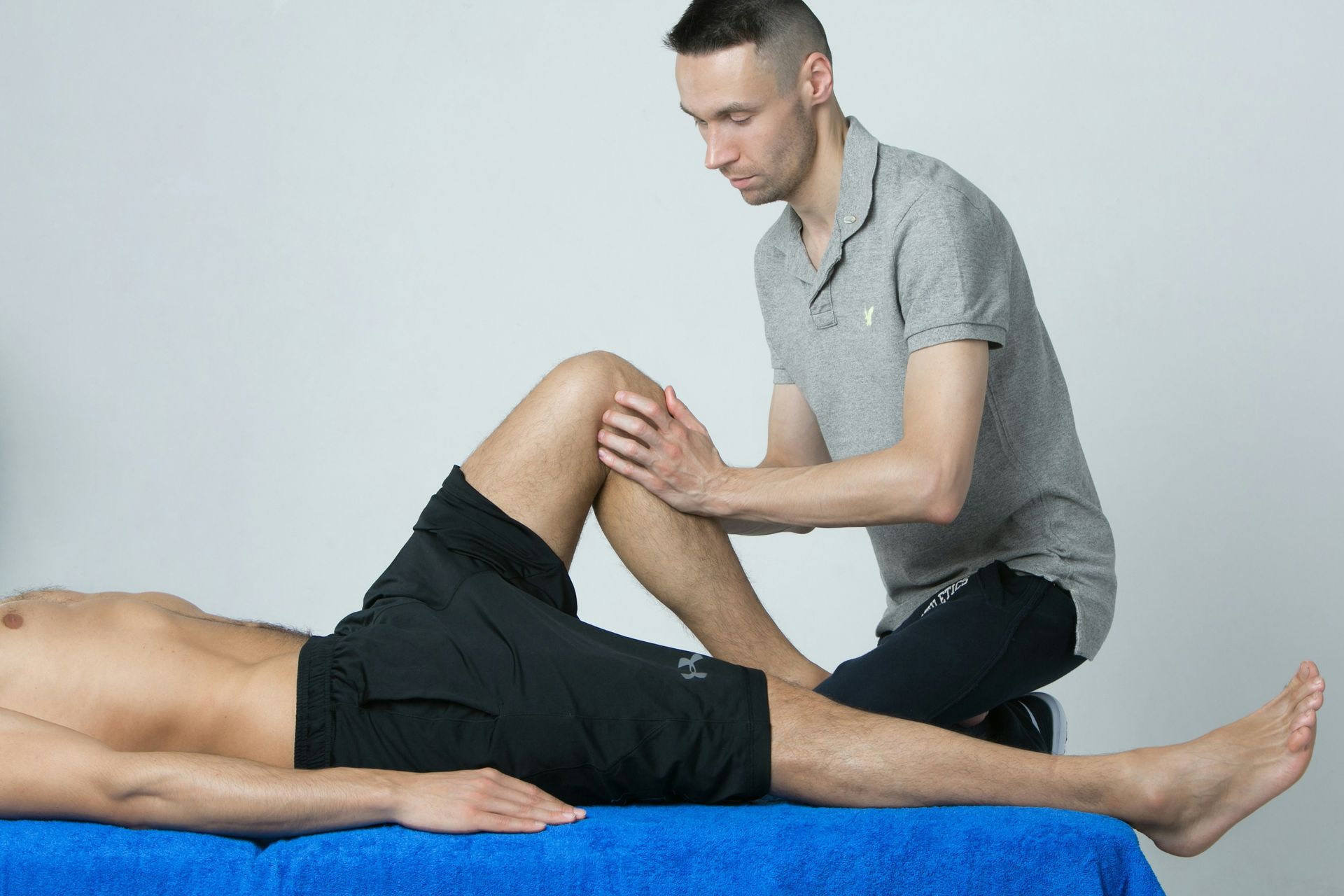Strength Training and Prostate Cancer: What the Research Says — and How to Get Started
A prostate cancer diagnosis can feel like a loss of control. Treatments like hormone therapy or radiation are often necessary and effective, but they can come with side effects that chip away at quality of life — fatigue, muscle loss, weight gain, anxiety, and more.
But there’s a growing body of research that points to something powerful you can control: your strength.
Strength Training as a Therapeutic Tool
Over the past decade, studies have consistently shown that regular, structured exercise — particularly strength training — can improve outcomes for men with prostate cancer.
Here’s what the science tells us:
🔹 Improves survival and slows disease progression
Men who stay active after a diagnosis tend to live longer. Ongoing research like the INTERVAL-GAP4 trial is investigating whether supervised high-intensity training can extend survival even in advanced prostate cancer. Early results suggest it might.
🔹 Eases side effects of hormone therapy
Hormone therapy (ADT) is a cornerstone treatment, but it can weaken muscles and bones, increase body fat, and impact energy and mood. Strength training directly counters these effects by preserving lean mass, increasing bone density, and improving insulin sensitivity.
🔹 Enhances mental and emotional well-being
Exercise isn’t just physical. It reduces anxiety, improves sleep, lifts mood, and restores a sense of agency. This matters deeply when you're navigating the uncertainty and stress of cancer treatment.
🔹 Supports better function and independence
Even short bouts of resistance training can improve mobility, balance, and confidence, especially for men in their 50s, 60s, and 70s who want to remain active, self-reliant, and engaged in life.
Who Should Consider Strength Training?
- Men on active surveillance, looking to be proactive
- Those undergoing hormone therapy, radiation, or chemotherapy
- Survivors looking to rebuild strength and return to daily life
- Anyone living with the mental weight of a cancer diagnosis
The best part? You don’t need to be an athlete. Many of the men who benefit most from strength training are in their 50s and 60s and have never been in a gym before.
Starting is the hardest part. But once you do, the benefits accumulate — physically and emotionally.
How to Start Safely
If you’re currently in treatment or recovery, start with:
- A medical clearance from your care team
- A movement screen or assessment to identify limitations
- A program that prioritizes safety, progression, and support
Most importantly, work with a coach or guide who understands the unique challenges of exercising during or after cancer treatment.
You don’t have to figure it out alone.
If You Live Nearby, We’re Here to Help
At Vitruvian Fitness in Wheat Ridge, we work with adults who want to stay strong, capable, and independent as they age. Many of our members are in their 40s through 70s, and some are navigating health conditions like cancer, chronic pain, or recovery from injury.
We offer 100% personalized strength training in a supportive small group setting, designed for people who want expert guidance without a high-pressure gym atmosphere.
If you live within 5 miles of us and are considering starting strength training during or after prostate cancer treatment, we’d be honored to be a part of that journey.
Final Thought
Prostate cancer can take a lot from you — but it doesn’t have to take your strength.
Strength training is not about lifting heavy weights or chasing fitness goals. It’s about reclaiming energy, function, and resilience. It’s about giving yourself the best possible chance to recover well, live fully, and stay strong for the people who count on you.
Wherever you choose to begin, begin. The research is clear: movement is medicine.
If you’d like more information or want to talk to a coach about your unique situation, we’re just down the road and always happy to help.
📍Vitruvian Fitness — Wheat Ridge, CO
You’re still in control. We’ll help you stay that way.
If you’re navigating treatment, recovery, or just figuring out where to start—our 30-Day Trial is built to help you move better, feel stronger, and stay in control of what’s yours.
👉Let's Talk! Click here to schedule a call!
References:
Improves Survival and Slows Disease Progression
- Cormie, P., et al. (2017).
INTERVAL-GAP4: A phase III study of high-intensity exercise in men with metastatic castrate-resistant prostate cancer.
BMJ Open, 8(5), e022899.
https://bmjopen.bmj.com/content/8/5/e022899 - Kenfield, S. A., et al. (2011).
Physical activity and survival after prostate cancer diagnosis in the Health Professionals Follow-Up Study.
Journal of Clinical Oncology, 29(6), 726–732.
https://ascopubs.org/doi/full/10.1200/JCO.2010.31.5226
Eases Side Effects of Hormone Therapy
- Galvão, D. A., et al. (2010).
Exercise can prevent and even reverse adverse effects of androgen suppression treatment in men with prostate cancer. Prostate Cancer and Prostatic Diseases, 13, 204–212.
https://pubmed.ncbi.nlm.nih.gov/17486110/ - Cormie, P., et al. (2015). The impact of exercise on cancer mortality, recurrence, and treatment-related side effects. Epidemiologic Reviews, 39(1), 71–92.
Eases Side Effects of Hormone Therapy
- Galvão, D. A., et al. (2010).
Exercise can prevent and even reverse adverse effects of androgen suppression treatment in men with prostate cancer. Prostate Cancer and Prostatic Diseases, 13, 204–212.
https://pubmed.ncbi.nlm.nih.gov/17486110/ - Cormie, P., et al. (2015).
The impact of exercise on cancer mortality, recurrence, and treatment-related side effects.
Epidemiologic Reviews, 39(1), 71–92.
https://academic.oup.com/epirev/article/39/1/71/4061574
Enhances Mental and Emotional Well-Being
- Craft, L. L., & Perna, F. M. (2004).
The benefits of exercise for the clinically depressed. Primary Care Companion to the Journal of Clinical Psychiatry, 6(3), 104–111.
https://www.ncbi.nlm.nih.gov/pmc/articles/PMC474733/ - Segal, R. J., et al. (2003).
Resistance exercise in men receiving androgen deprivation therapy for prostate cancer.
Journal of Clinical Oncology, 21(9), 1653–1659.
https://ascopubs.org/doi/full/10.1200/JCO.2003.09.534
Supports Function and Independence
- Santa Mina, D., et al. (2012).
Exercise in clinical cancer care: a call to action and program development description. Current Oncology, 19(3), e136–e144.
https://pmc.ncbi.nlm.nih.gov/articles/PMC3364774/ - Winters-Stone, K. M., et al. (2015).
Resistance training reduces disability in prostate cancer survivors on androgen deprivation therapy: evidence from a randomized controlled trial.
Archives of Physical Medicine and Rehabilitation, 96(1), 7–14.
https://pubmed.ncbi.nlm.nih.gov/25194450/
You might also enjoy these posts . . .
